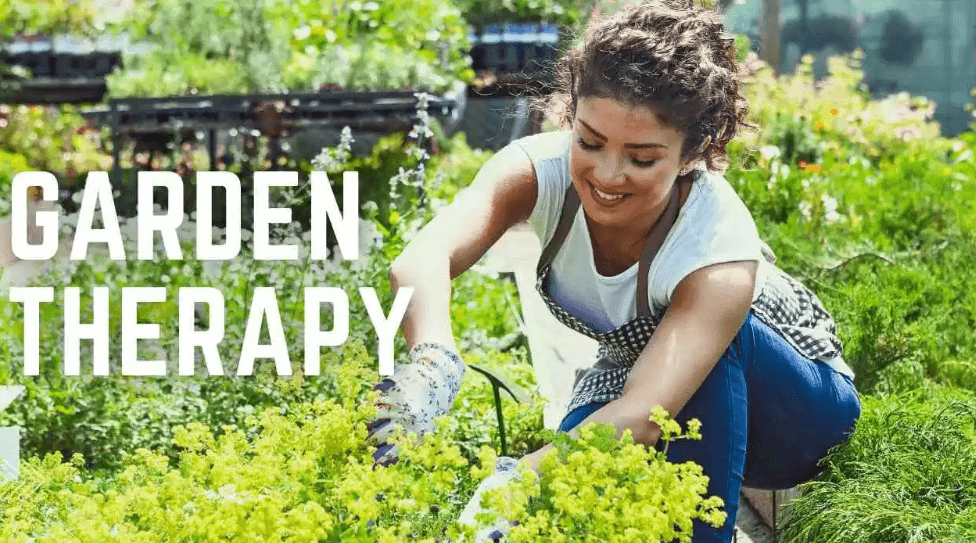Discover the Joy of DIY Garden Projects
Unleash your creativity and enhance your well-being with delightful DIY garden projects. Engaging in gardening activities not only allows you to beautify your surroundings but also provides a sense of accomplishment and tranquility. Whether you have a spacious backyard or a cozy balcony, there are numerous creative ideas to explore. Let’s dive into some exciting Garden Therapy: Embrace the Joy of DIY Garden Projects, Delightful Recipes, and Creative Crafts.
Read Also 45.907.430 Ltda Oriente Palace Hotel Rio VerdeV
1. Charming Vertical Gardens for Limited Spaces
Embrace the wonders of vertical gardening to maximize your limited outdoor space. Vertical gardens are not only visually appealing but also highly practical, especially for urban dwellers. Construct a beautiful living wall using wooden pallets, old shelves, or hanging planters. Grow your favorite herbs, colorful flowers, and succulents to add a touch of nature to your surroundings. With a well-designed vertical garden, you can turn any blank wall into a vibrant living canvas.
2. Enchanting DIY Fairy Gardens
Let your imagination run wild with enchanting DIY fairy gardens. Create miniature landscapes that transport you to a magical realm filled with tiny houses, adorable figurines, and lush greenery. Design your fairy garden in a vintage teacup, an old drawer, or a small terrarium. These delightful creations will not only captivate your guests but also ignite the childlike wonder within you.
3. Recycled Planters with a Green Twist
Showcase your environmental consciousness by crafting recycled planters. Repurpose old containers, tin cans, or tires into unique plant homes. This eco-friendly approach not only reduces waste but also adds a touch of charm to your garden. Get your hands dirty, paint the containers with vibrant colors, and breathe life into them by planting your favorite flora. Your garden will be a testament to your creativity and love for Mother Earth.
Savor the Delightful Recipes from Your Garden
Embark on a culinary adventure by incorporating fresh ingredients from your garden into delightful recipes. There’s something inherently satisfying about nurturing a plant and then transforming its harvest into a mouthwatering dish. Let’s explore some delectable recipes that celebrate the flavors of your garden.
1. Garden-Fresh Caprese Salad
Indulge in the simplicity of a garden-fresh Caprese salad. Gather juicy tomatoes, pluck fragrant basil leaves, and pick delectable mozzarella cheese. Layer these ingredients together, drizzle with balsamic glaze, and sprinkle a pinch of salt and pepper. This refreshing salad is a celebration of summer and the bounties of your garden.
2. Aromatic Herb-Infused Oils
Capture the essence of your herbs by creating aromatic herb-infused oils. Fill a glass jar with your preferred herbs, such as rosemary, thyme, or lavender. Add high-quality olive oil and let the flavors meld together over a few days. Once ready, drizzle the herb-infused oil over salads, pasta, or roasted vegetables for a burst of natural goodness.
3. Luscious Berry Jam
Transform the sweetness of freshly picked berries into luscious homemade jam. Combine strawberries, blueberries, or raspberries with sugar and a splash of lemon juice in a pot. Let the mixture simmer until it thickens to perfection. The rich colors and flavors of the berries will preserve the essence of your garden’s abundance.
Read Also The Guy Corner NYC: Where Men Find All Things Tech, Sports, Food, and More
Unleash Your Creativity with Crafty Goodness
Infuse your garden and home with your artistic flair by engaging in crafty goodness. Craft projects not only beautify your living spaces but also offer a sense of fulfillment as you witness your creations come to life. Let’s explore some crafty ideas to ignite your inspiration.
1. Hand-Painted Garden Stones
Personalize your garden with hand-painted stones that exude charm and character. Gather smooth stones, unleash your artistic prowess with acrylic paints, and create eye-catching designs. These delightful stones can be used as garden markers, paperweights, or decorative accents to add a touch of whimsy to your outdoor oasis.
2. DIY Birdhouses for Feathered Friends
Welcome chirping visitors to your garden by constructing DIY birdhouses. Use reclaimed wood or sturdy cardboard to build cozy shelters for your feathered friends. Decorate the birdhouses with eco-friendly paints and hang them amidst the branches. Observing the birds seeking refuge in the homes you’ve crafted will be a heartwarming experience.
3. Rustic Garden Lanterns
Craft enchanting rustic lanterns to illuminate your garden during cozy evenings. Repurpose old mason jars or glass bottles, wrap them with twine or burlap, and insert a tealight or LED candle inside. These rustic lanterns will create a warm and inviting ambiance, making your garden a perfect spot to unwind and enjoy the wonders of nature.
Enhance Your Garden Therapy with Mindful Meditation
Amidst the hustle and bustle of modern life, your garden can become a sanctuary for mindful meditation. Embrace the therapeutic benefits of spending time in nature and use your garden as a tranquil space for meditation and relaxation. Here are some tips to help you get started:
1. Create a Peaceful Meditation Corner
Designate a serene corner in your garden where you can immerse yourself in peaceful meditation. Add a comfortable cushion or a meditation bench, surrounded by potted plants and soft garden scents. This designated space will become your go-to spot for finding inner calm and clarity.
2. Practice Breathwork Amongst Nature
Sit comfortably in your meditation corner, close your eyes, and focus on your breath. Feel the gentle breeze caressing your skin and listen to the soothing sounds of nature. With each inhale and exhale, allow yourself to let go of stress and tension, connecting with the present moment.
3. Engage Your Senses
During meditation, engage your senses to deepen your connection with the garden. Feel the textures of leaves and petals, notice the vibrant colors around you, and inhale the scents of flowers and herbs. By fully immersing yourself in these sensory experiences, you’ll find a sense of grounding and peace.
Read Also Solargenerator Kaufen Wie Ist Der Jackery 2000w Pro Mccallins Outdoor
Embrace Gardening as a Form of Self-Care
Gardening isn’t just a hobby; it’s an act of self-care that nurtures your well-being. Engaging in gardening activities allows you to unplug from digital distractions, reduce stress, and focus on the present moment. Here’s how gardening can be an essential part of your self-care routine:
1. Cultivate Mindfulness in Gardening
As you tend to your plants and garden, practice mindfulness by fully engaging in each task. Whether you’re planting seeds, weeding, or watering, be present and attentive to the activity at hand. Gardening offers a wonderful opportunity to practice mindfulness and foster a deeper connection with nature.
2. Relish in the Joy of Growing Your Own Food
If you have a vegetable or herb garden, harvesting your own produce is a rewarding experience. There’s a unique satisfaction in knowing that the food on your plate comes from your hard work and dedication. Additionally, homegrown fruits and vegetables are fresher and more nutritious, adding to the joy of healthy eating.
3. Find Solace in Gardening
Gardening provides solace and healing during challenging times. When you’re feeling overwhelmed or stressed, spending time in your garden can offer a sense of comfort and renewal. Engaging with the earth, nurturing plants, and witnessing growth can be profoundly therapeutic.
The Green Revolution: Sustainable Practices for Your Garden
In this modern age, it’s crucial to embrace sustainability in every aspect of our lives, including gardening. By adopting eco-friendly practices, you can create a garden that not only thrives but also contributes positively to the environment. Let’s explore some sustainable gardening practices to make your green space even greener:
1. Water-Wise Gardening
Conserving water is essential, especially in regions prone to drought. Opt for water-wise gardening techniques that help minimize water usage without compromising on plant health. Consider installing a drip irrigation system, which delivers water directly to the plant roots, reducing wastage. Mulching around plants also helps retain moisture and suppresses weed growth, further conserving water.
2. Composting for Nutrient-Rich Soil
Instead of relying on chemical fertilizers, embrace composting to create nutrient-rich soil for your garden. Composting not only reduces waste but also enhances soil structure and promotes healthy plant growth. Collect kitchen scraps, yard trimmings, and coffee grounds to create a compost pile. Over time, the organic matter will decompose, transforming into dark, crumbly compost that enriches your garden’s soil naturally.
3. Embrace Companion Planting
Implementing companion planting strategies can boost plant health, repel pests, and improve pollination. Select plant combinations that benefit each other when grown together. For example, planting marigolds near tomatoes helps deter pests, while growing beans alongside corn provides natural support for climbing.
Attracting Beneficial Wildlife to Your Garden
A biodiverse garden attracts beneficial wildlife that contributes to its overall health and balance. Encourage these friendly visitors to make your garden their home:
1. Welcome Pollinators with Native Plants
Pollinators like bees, butterflies, and birds play a vital role in plant reproduction. Attract them to your garden by incorporating native plants and flowering herbs. These plants provide a valuable food source for pollinators and create a vibrant, blooming garden that thrives with life.
2. Provide Shelter and Water
Create habitats that offer shelter and nesting spots for various wildlife. Install birdhouses, bee hotels, and butterfly boxes to provide safe havens for these creatures. Additionally, consider adding a small birdbath or a shallow dish of water to quench the thirst of birds and other animals.
3. Natural Pest Control with Predators
Invite beneficial predators to your garden to keep pest populations in check. Ladybugs, praying mantises, and certain bird species feed on harmful insects that can damage your plants. Avoid using chemical pesticides that harm these helpful creatures and disrupt the natural balance of your garden.
The Ever-Evolving Garden
As the seasons change and plants grow, your garden is a dynamic space that requires continuous care and adaptation. Stay engaged with your garden by:
1. Seasonal Planting
Plan your garden in accordance with the changing seasons. Different plants thrive at different times of the year, and by rotating crops, you can maintain soil health and prevent disease buildup.
2. Regular Pruning and Trimming
Pruning and trimming your plants ensure they remain healthy and well-shaped. Removing dead or diseased branches not only enhances the plant’s appearance but also prevents the spread of illnesses.
3. Observing and Learning
Be an attentive gardener and observe the behavior of your plants and the wildlife that visits. Learn from your garden’s patterns and make adjustments accordingly. Each year, you’ll become more in tune with its unique ecosystem, resulting in a thriving and harmonious green space.
Read Also Self-Control Is Strength. Calmness Is Mastery. You – Tymoff
Conclusion
Incorporating garden therapy into your life can bring a myriad of benefits, including stress reduction, creative expression, and a deeper connection with nature. Embrace the joy of DIY garden projects, savor delightful recipes from your harvest, and unleash your creativity through crafty goodness. Remember to cultivate mindfulness and self-care as you immerse yourself in the beauty of your garden sanctuary.
Let your garden become a haven of peace and inspiration, where you can escape the daily demands and find solace in the nurturing embrace of nature. Embrace this transformative journey, and your garden will not only bloom with beauty but also nurture your body, mind, and soul. Happy gardening and may your garden therapy bring endless joy and fulfillment.





 A Closer Look at the Unseen Risks and Health Concerns of Frozen Meat
A Closer Look at the Unseen Risks and Health Concerns of Frozen Meat